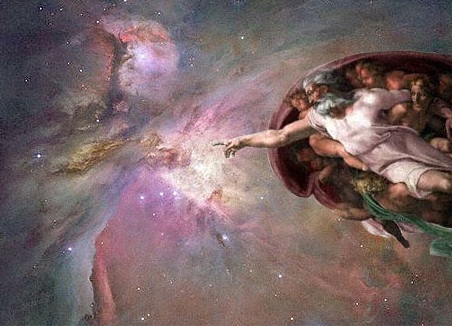Randall, John H., The Making of the Modern Mind Columbia University Press, New York 1976 [abstract— 210 words] — The life and death of “natural religion” or Deism
Newton’s achievements made the universe seem amenable to understanding by the human mind. Therefore, it was reasoned, religion could stand on the foundation of rational understanding. There were supernatural rationalists who insisted on the inclusion of divine revelation. They were swept away by the rejection of special divine action and miracles by rational criticism.
The Deists remained and insisted that religion like any science could be defended by rational thought alone. They could hold this view because Newtonian science revealed a mechanical universe, eternally unchanging obeying rational laws. If the universe was machine there logically had to be a machine maker. God became more and more to be identified with the mathematical order of nature and as the creator of a perfect machine it was logical that he was intelligent and his product was perfect. The perfect machine of the Deists operated without the intervention of the divine hand.
It was not hard for men like Hume, Holbach and Kant to demolish this notion. They pointed out that order and purpose is a man-made distinction that has no meaning in the world apart from man. The existence of evil within a perfect machine was an unanswered question.
The use of reason made founding religion upon the principles of reason henceforth impossible.


